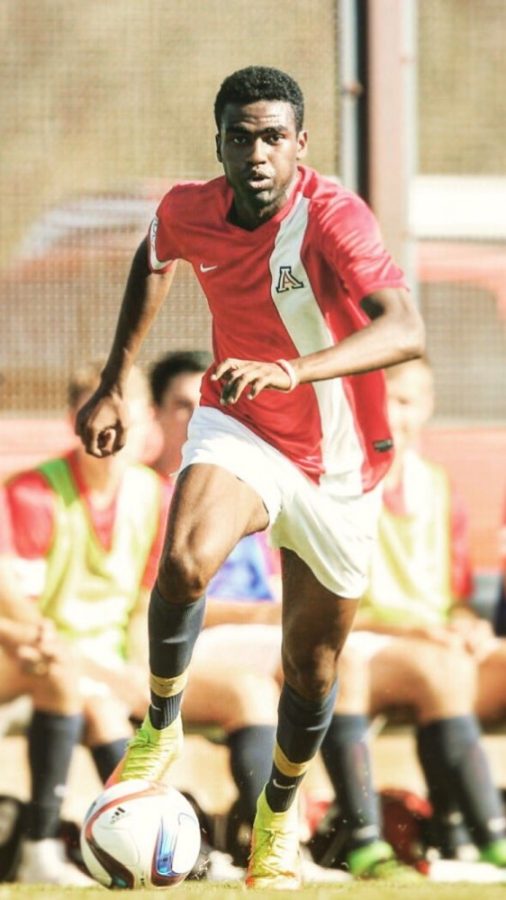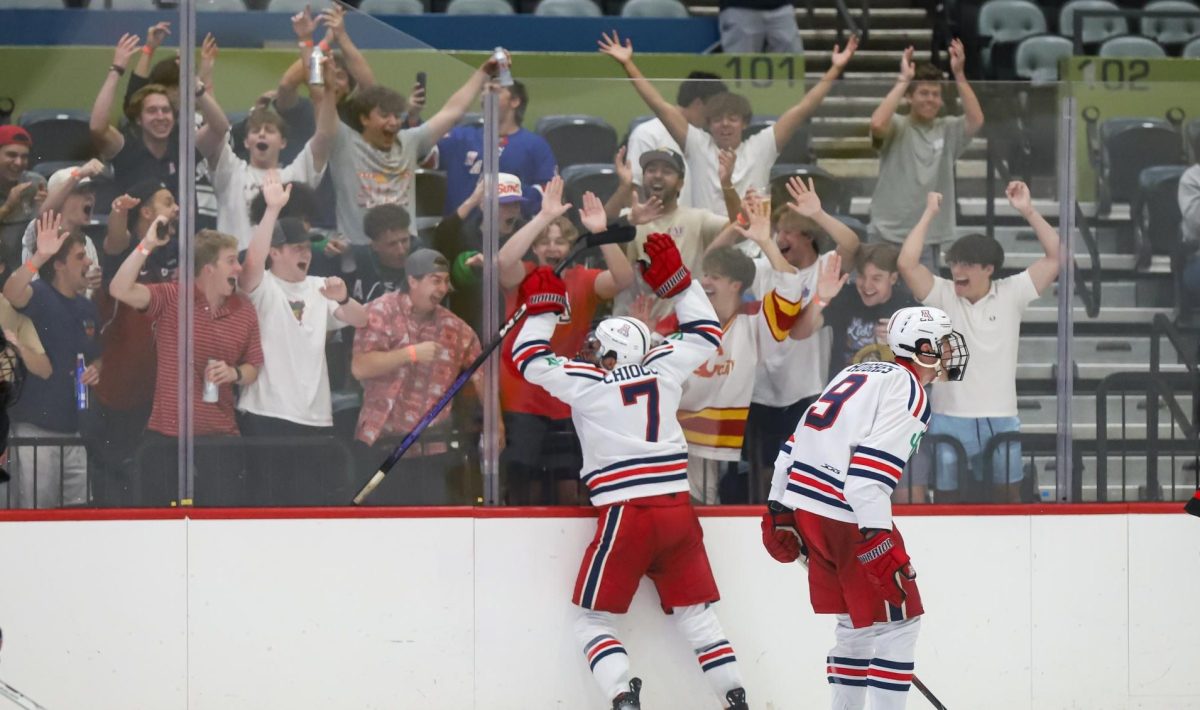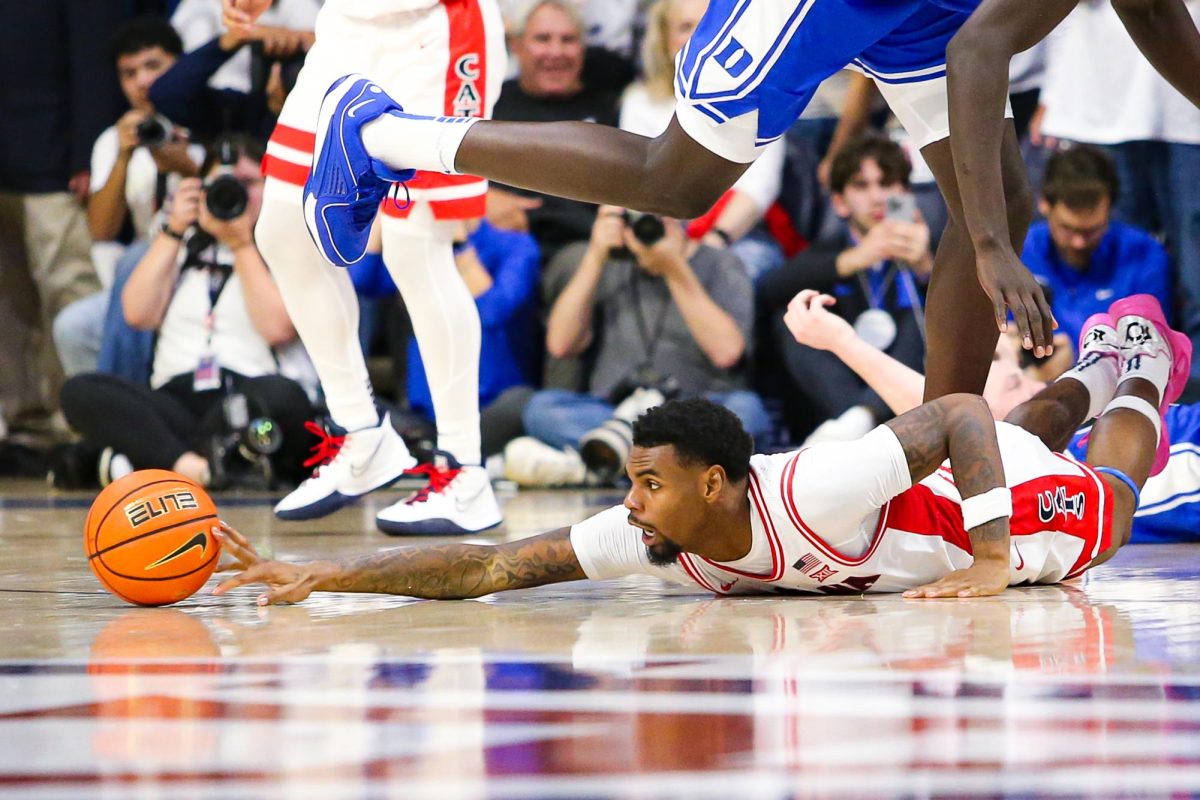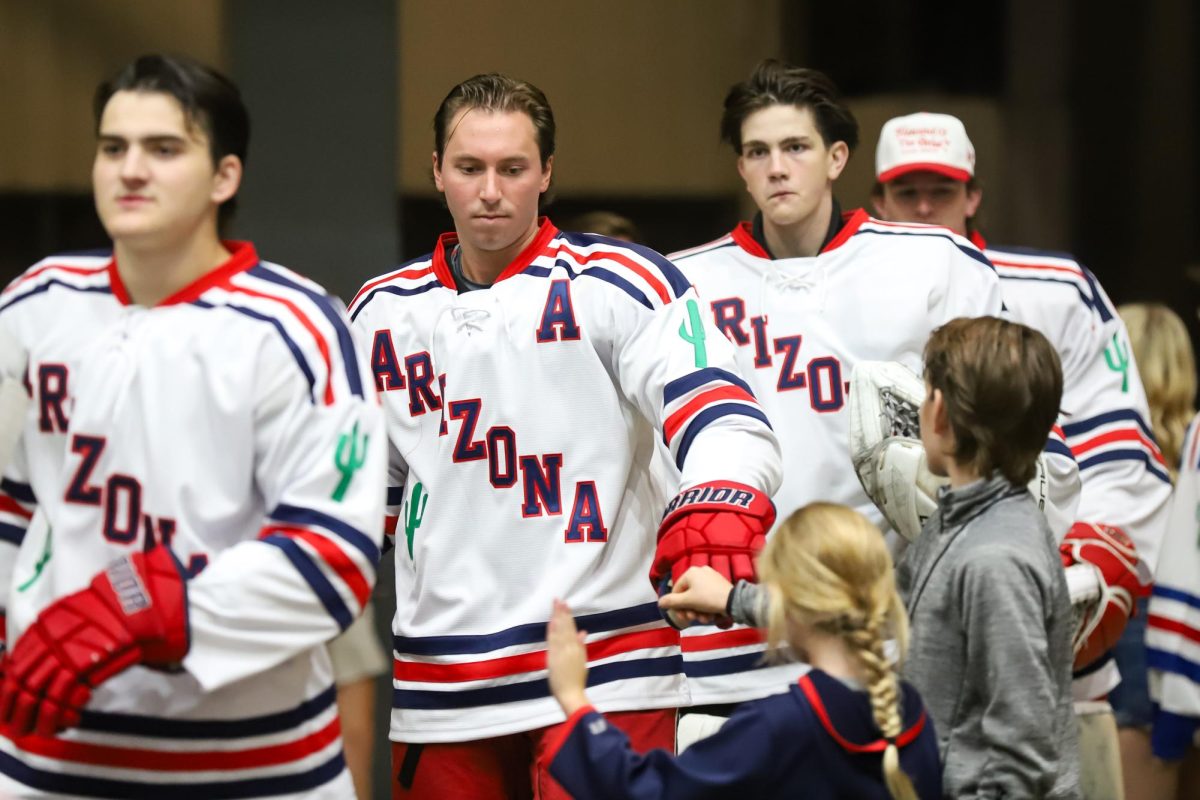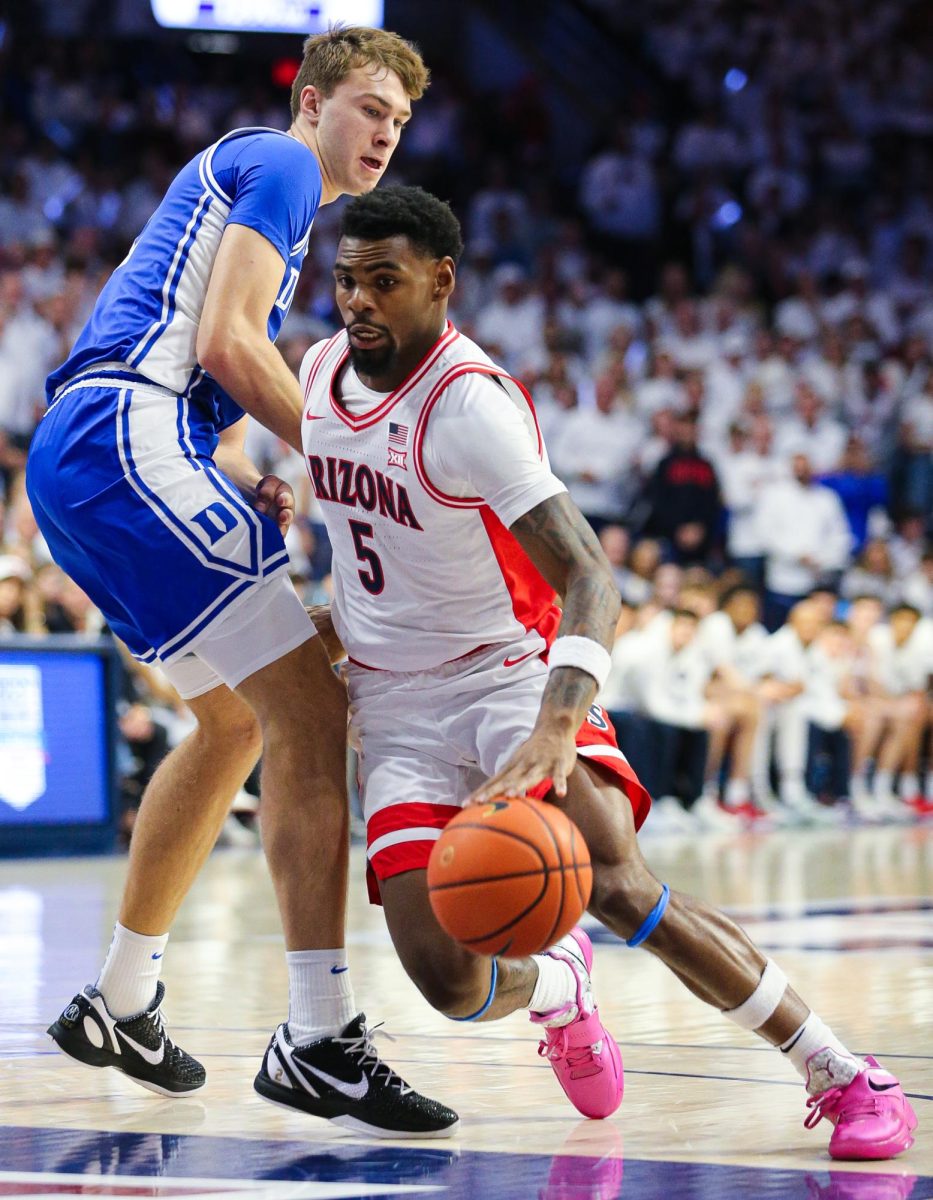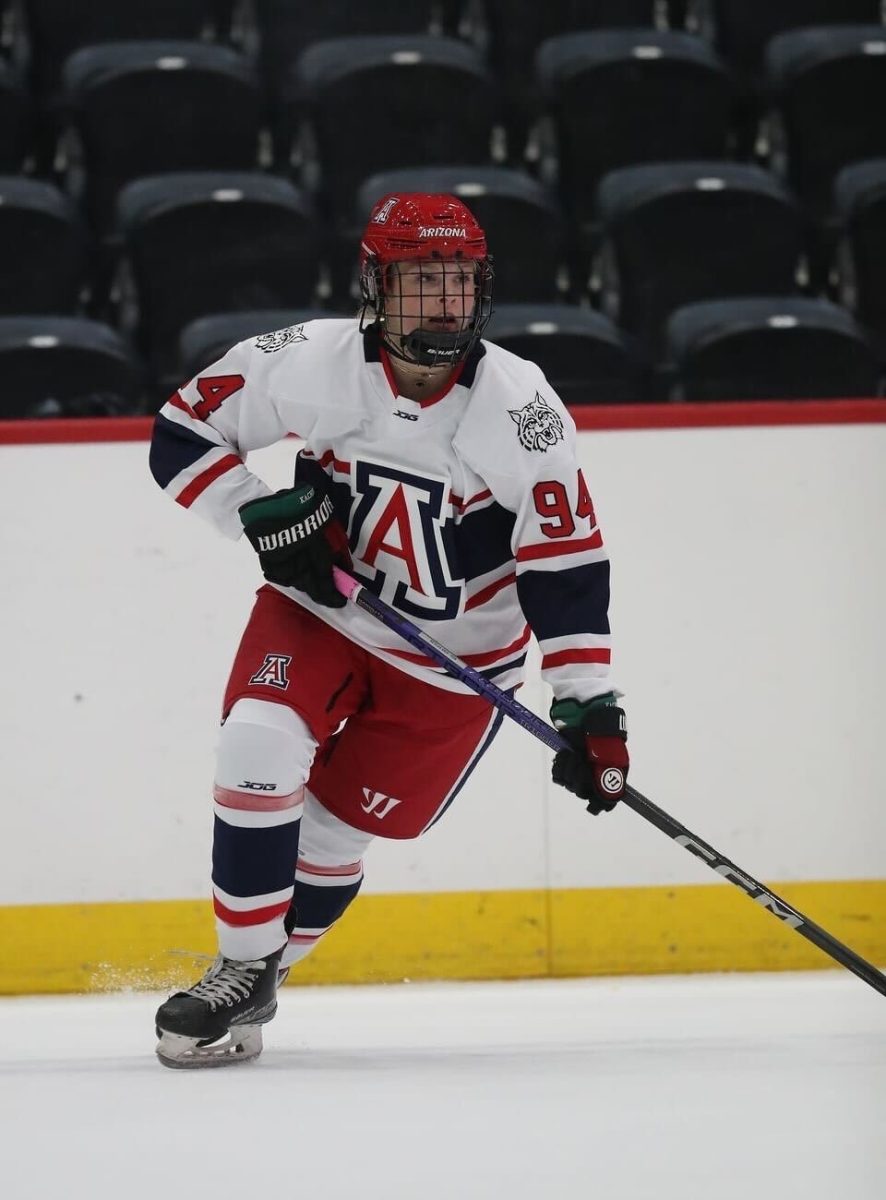As a young boy, Zak Said walked out into the streets of Tripoli, Libya carrying a soccer ball. Cleats in hand and a jersey on his back, he grew to love the game so many take for granted.
“I played basketball for a while, but it wasn’t for me,” Said said. “I jammed my finger once and I decided to move to soccer.”
Said grew up idolizing Italian center forward Christian Vieri of Inter Milan, which would be the first jersey his father ever bought him.
“It was the first team I was in love with,” Said said. “I just wanted to be like him.”
In 2007, Said’s mother had an opportunity to earn her Ph.D. at the UA, eventually becoming a professor of geography. The entire family packed their belongings and headed to Tucson.
“I kid you not, I didn’t speak any English,” Said said. “I knew how to count from one to 10 and ‘my name is.’ Coming from a different country, you try to make friends. The only thing that I knew was to play soccer.”
The sport would be the easiest way to communicate. He could show off his skills with no words. By sophomore year of high school, he was playing soccer behind the cafeteria during lunch period. He eventually rose to the high school varsity soccer team.
“I scored the game-winning goal in my first game,” Said said.
As time moved on, all his family moved back to Libya, while Said stayed to attend school at the UA.
“I was sponsored by my government to pay for my school and education,” Said said. “The war affected that. At one point, I was no longer enrolled in school.”
The war Said is referring to is the Libyan Civil War, an ongoing conflict in the country since 2011. With so many events around the region, Said has had a difficult time without his family to support him.
“I don’t watch the news,” Said said. “I just call my parents and that’s about it. I do not follow the news.”

The sport of soccer wound up connecting him with what he calls his second family: the UA men’s soccer team.
“My soccer team, they are my brothers,” Said said. “If something happens to me, they are the first people to know what is going on. Here, I have 22 brothers to count on.”
The UA men’s soccer team embraced Said’s story and never let him feel alone.
“When you come from a different country, everything back home affects you here,” Said said. “It’s messy out there. When your family goes through a lot from not having electricity or gas to fleeing our house at one point, that affects you. Once you are on the soccer field, it’s like magic. All those problems go away.”
Despite the everyday challenges of living in a country without his family to rely on, Said has found his release through soccer.
“If I take off my shoes and start playing soccer, I’m a better player,” Said said. “That’s how we grew up. You go out with your neighborhood buddies and go at it after school.”
At first, Said was nervous to share his story. He said it took him a while to open up to his teammates and professors.
“It’s been really tough on him being separated from his family for so long,” said senior Mac Merchant. “He’s always worried about their safety due to the state of their country right now. His parents have been really supportive of him getting his degree at the UA and have made unbelievable sacrifices to keep him enrolled.”
While Said graduated from the UA in December with an Information Science degree, he owes much of his success to his professors.
“Once you tell the professors about your story, they understand where you are coming from,” Said said. “They are the reason behind me graduating and being successful.”
While Said continues to interview for full-time jobs, he always knows he has a place on the UA campus and with the men’s soccer team.
“Sometimes when people ask me where I’m from, I say Tucson,” Said said. “Arizona is my second home.”
Follow Matt Wall on Twitter



